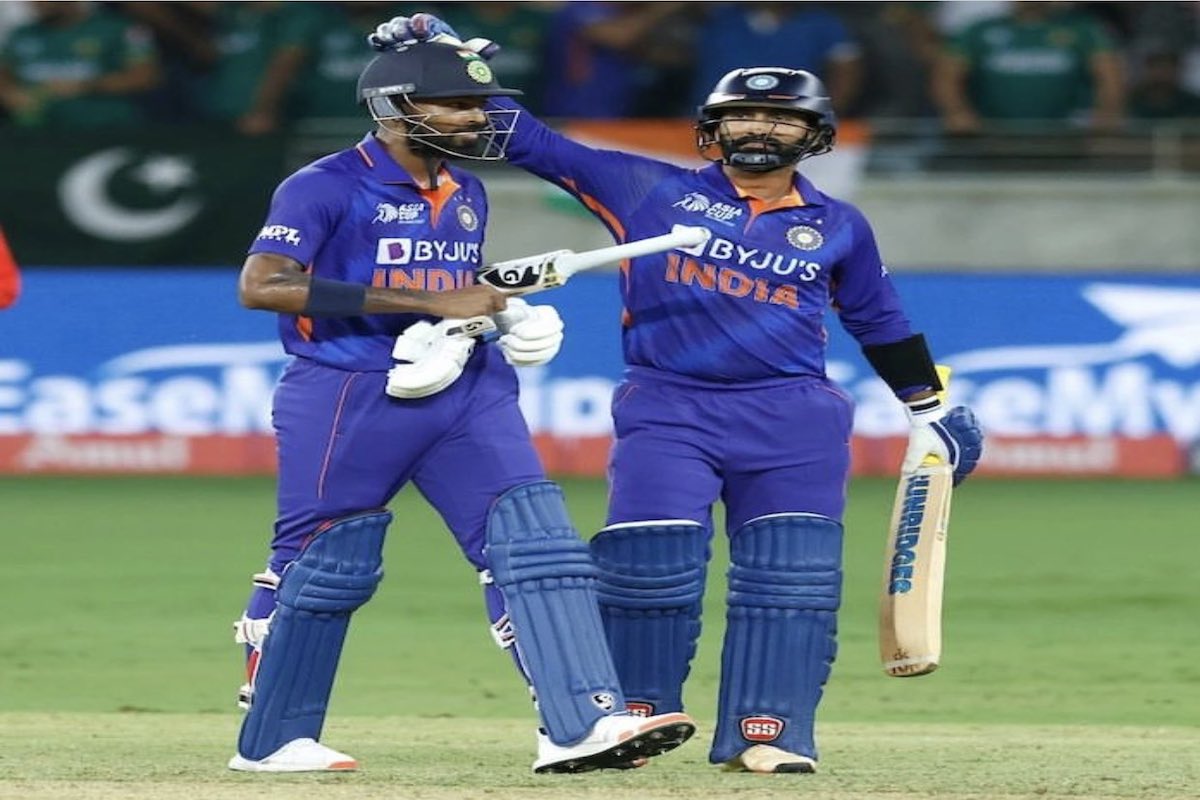Budget a force multiplier, milestone in India’s development journey: PM Modi
Prime Minister Narendra Modi on Saturday hailed the Union Budget as a force multiplier that would increase savings, investment, consumption, and growth.
On a scorching hot day in Dubai International Stadium, Rohit Sharma won the toss and chose to ball first by keeping the dew factor and pitch dryness in mind.

Asia Cup 2022: India vs Pakistan Match Review (Picture Credits - IANS)
The 309 day wait for the Indian Cricket team to get back at their arch-rivals Pakistan finally came to an end, as the Indian team registered their eighth win against them.
Advertisement
Advertisement
On a scorching hot day in Dubai International Stadium, Rohit Sharma won the toss and chose to ball first by keeping the dew factor and pitch dryness in mind.
Both the teams played on the same pitch where last night Afghanistan and Sri Lanka locked horns.
From @hardikpandya7‘s emotional Asia Cup journey to @imjadeja‘s solid batting display!
The all-rounder duo chat up after #TeamIndia win their #AsiaCup2022 opener against Pakistan – by @ameyatilak
Full interview https://t.co/efJHpc4dBo #INDvPAK pic.twitter.com/MJOij6bDRl
— BCCI (@BCCI) August 29, 2022
And because of the time shortage in between both the games, the pitch curator couldn’t water the pitch which didn’t help the swing bowlers.
The openers Babar and Rizwan survived the first over by Bhuvaneshwar Kumar. The pacer however, managed to dismiss Pakistani skipper Babar Azam on 10 runs.
The Indian team managed to restrict Pakistan on 42 runs at the end of the powerplay while also taking the wickets of Babar and Fakhar Zaman.
Third number batsman Iftikhaar Ahmed was on 27 runs when he was dropped by Yuzvendra Chahal in what could’ve been a caught and bold. However, at the start of the 13th over, Hardik Pandya managed to dismiss him.
Hardik Pandya managed to take his second and the all important wicket of Rizwan on 43 runs. What followed was the collapse of the batting lineup as Bhuvneshvar Kumar managed to send big hitter Asif Ali back in the dugout on just 9 runs.
23 year old Arshdeep Singh got his maiden wicket against Pakistan when he took Nawaz’ wicket in the 19th over. Tail ender Dahani managed to send two balls out of the boundary to close the innings for Pakistan at 147 as Arshdeep closed the innings for Pakistan.
Most of the wickets were taken by the pacers and that too by short deliveries which seemed to be the strategy for the bowling contingent on the night.
India’s run chase began on the wrong foot as KL Rahul who just came back from injury went for a duck on Naseem Shah’s delivery.
Later, Virat Kohli survived a scare when Fakhar Zaman dropped him in the slip on the 4th ball of the 1st over.
However, India managed to end the power play with the loss of just one wicket. The Pakistan bowling contingent managed to break the Rohit-Kohli duo as the skipper lost his wicket on just 12 runs in the 8th over.
Nawaz later dismissed Kohli in the same manner as Rohit Sharma when the latter went for 35 runs off 34 deliveries.
Suryakumar and Jadeja duo managed to bring some balance into the chase by putting up a partnership of 36 runs.
Naseem Shah managed to dismiss the in-form Suryakumar on 18 runs in the 15th over as India stood on 89 runs.
With 59 runs required in the last 5 overs, the match winning partnership of Hardik Pandya and Ravindra Jadeja managed to put up a 52 run stand with both the players batting on a strike rate of 194 and 120 respectively.
The final over saw India in need of seven runs in the end. Pandya and Jadeja were relaxed as the ball was given to spinner Nawaz and expected an easy path to victory.
However, the first ball gave the Indian fans a lot to be scared about when Jadeja got himself dismissed while trying to hit big.
In the dying moments of the game, the Indian fans got to witness Pandya keeping his nerve and showcasing his class by smashing the ball out of the ground for a six and giving India a 5 wicket win over arch rivals Pakistan.
Advertisement